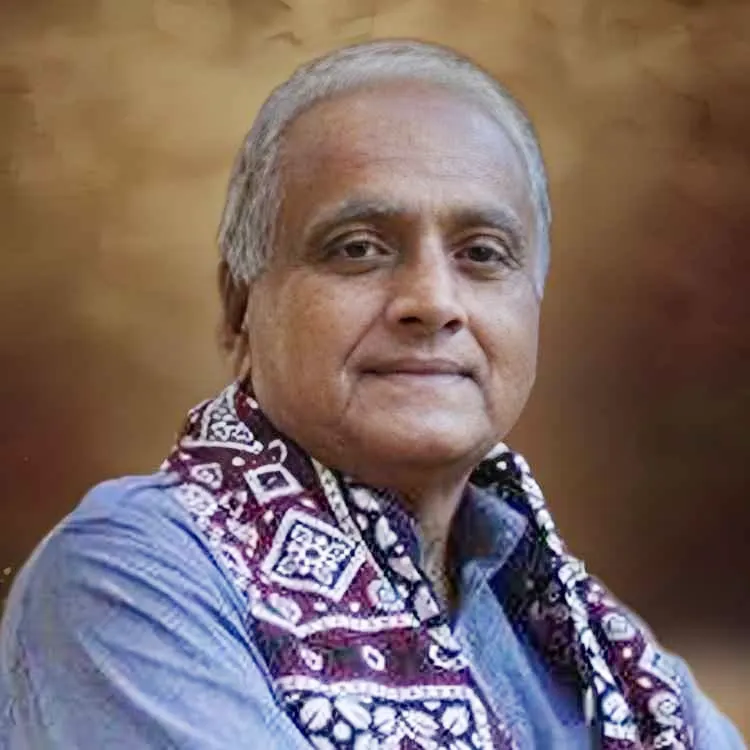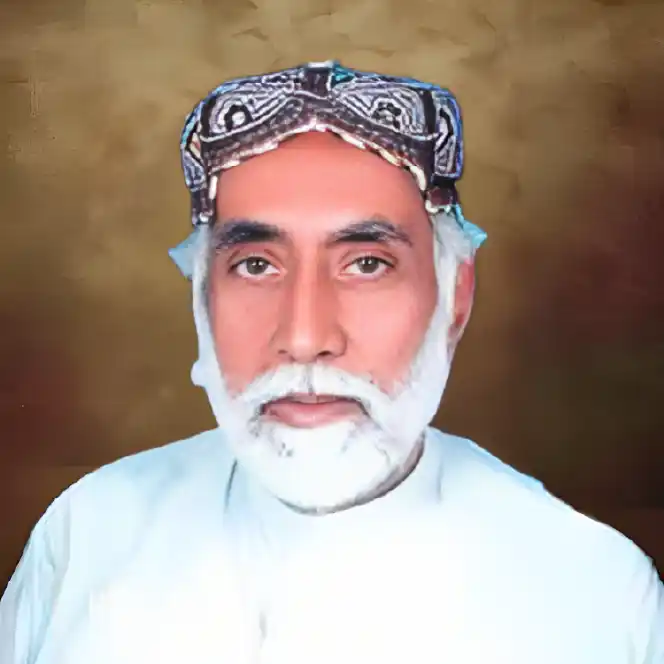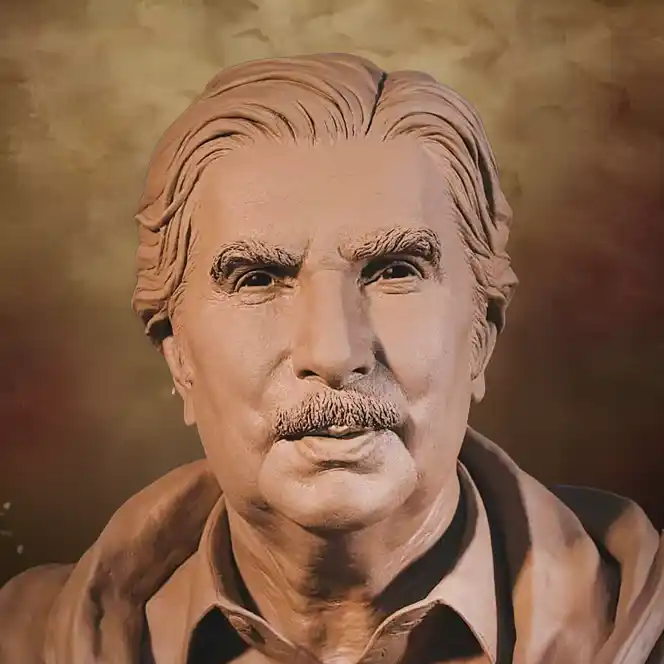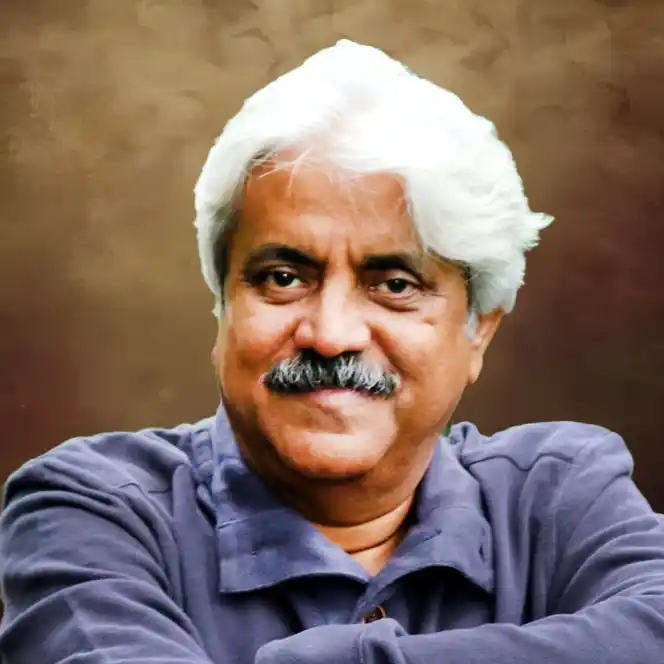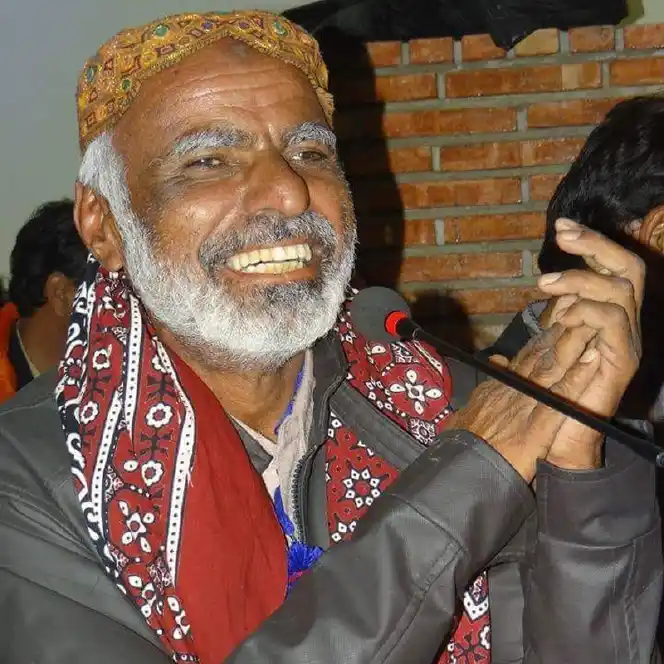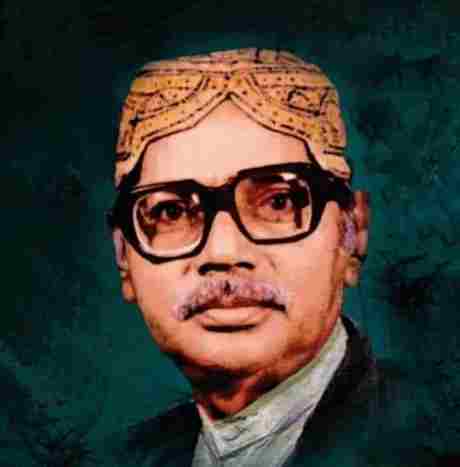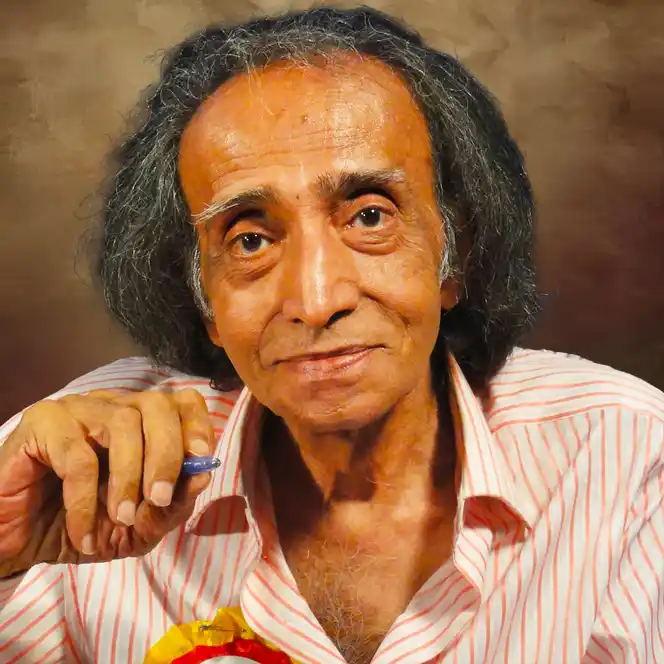| Birth Name |
Abdul Ghaffar Tabassum |
| Pen Name |
Tabassum |
| Born |
Thursday، 20 September 1951 |
| Birth Place: |
Larkano |
Abdul Ghafar, known by his pen name Tabassum, was born on November 20, 1951, in the village of Mirpur Bhutto, Ratodero Taluka, Larkana District. He began his early education in Naudero and Garhi Yasin and completed his matriculation from Government High School, Naudero, in 1966. Tabassum pursued his Bachelor’s degree at Arts and Commerce College, Larkana, graduating in 1972, and went on to earn a Master’s degree in International Relations from Sindh University, Jamshoro, in 1974, securing second position in his class.
Tabassum’s life has been multifaceted, marked by his contributions as a student leader, cultural and social activist, dramatist, television actor, filmmaker, poet, and municipal politician. His leadership roles began in 1972 when he became the General Secretary of the Students' Union at Arts and Commerce College, Larkana. In 1974, he represented his class at the Sindh University Students' Union and served as an official of the Sindh Azad Maroara Students' Federation. He was also Joint Secretary of the Debating and Literary Society at Government College, Larkana, and Vice President of the Larkana Students’ Organization (LSO). Tabassum excelled in debate competitions, winning numerous awards.
Earlier in his student life, in 1963, he served as the General Secretary of Al-Fateh Students' Federation, Naudero. He founded the Sindh Graduates Association’s Naudero branch and served as the President and Patron of the Naudero Dramatic Society, producing plays such as Sheerin Farhad, Baghban (Sindhi adaptation of Agha Hashar Kashmiri's work), and Leela Chanesar.
Tabassum was a prominent actor in Sindhi television dramas, including the acclaimed 1978 production Bree Hun Bhanbhor Mein. He also hosted numerous cultural and literary events and served as the host of the television program Sindh Singar from 1981 to 1982. In addition to acting, he ventured into filmmaking, producing and acting as the hero in the Sindhi film Barsaat Ji Raat in 1982 and playing a villain in the film Sehna Saeen.
Professionally, Tabassum’s career included roles as a teacher, family planning officer, and officer at United Bank in 1983. He later joined Pakistan International Airlines (PIA) as an officer in 1975. After being dismissed during the martial law era in 1981, he briefly worked as a contractor. From 1983 to 1987, he served as Chairman of the Naudero Municipality, where he was instrumental in city development and resolving local disputes. In 1990, he was reinstated at PIA and continued to excel in his responsibilities.
Tabassum’s identity as a poet is deeply cherished. He began writing poetry in 1964-65 and presented his first poem in 1966 at a literary event chaired by Makhdoom Talib-ul-Mola at Oriental College, Hyderabad. His published poetry collections include Gulan Jhara Gal (1966), Mitti Ja Sir (1991), Shafaq Wara Chhanwara (1982), Zindagi Tuhnja Rang Hazar (1994), Sochon Sahara Sarab (1995), Nainan Ji Agar Mein (1996), and Tanha Kandhi Jo Musafir (1999).
Tabassum was a regular contributor of satirical columns to Awami Awaz newspaper for three years. His poetry, deeply rooted in themes of love, homeland, and the struggles of ordinary people, has been widely sung by prominent Sindhi artists. His work has resonated with audiences across cities and villages, achieving immense popularity. He is the first Sindhi poet to have his poetry released on CD in the United States in 1999.
Internationally, he represented Sindh and Sindhi culture at various events. In 1992, he attended the Sindhi Sadaeen Gudd organization’s invitation in Dubai and was invited by the Sindhi Association of North America (SANA) to events across California, Chicago, Washington, and New York. He also visited Singapore, Malaysia, Bangkok, Saudi Arabia (for Umrah in 1978 with his father), Germany, and England.
In 1980, Tabassum married into the Awan family. He has six children: Khalil Gibran, Arsalan, Nosherwan, Zafran, Faran, and a daughter, Sarah Ghafar.
Tabassum is celebrated as a socialite, a lover of art and literature, and a warm personality known for his humility, kindness, and infectious smile. He remains a respected figure in Sindhi literary and cultural circles.
